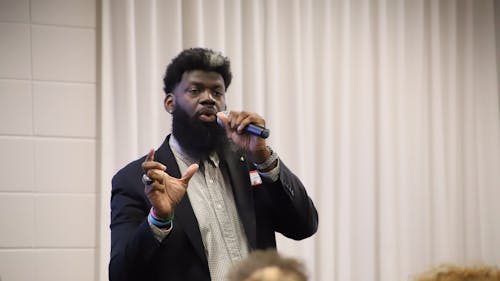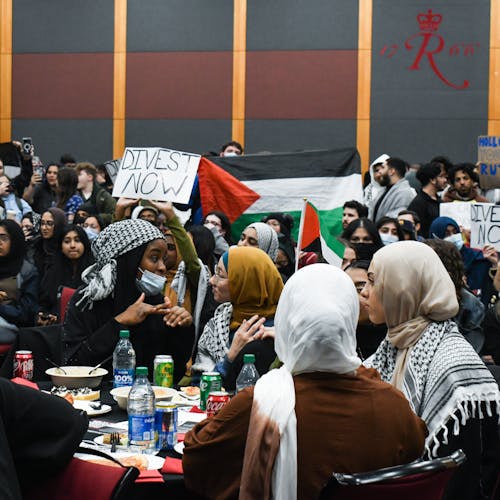Rutgers School of Public Health hosts event on reducing youth involvement in criminal justice system

The Rutgers School of Public Health hosted a half-day conference titled “Reducing Youth Involvement with the Criminal Justice System” last Thursday, which addressed the youth-to-prison pipeline among students in Newark and throughout the state.
“With students living in concentrated poverty and faced with disparities in health, education and employment opportunities it is imperative that we focus on changing these disadvantages by developing opportunities to keep today’s youth out of the criminal justice system,” said Assistant Dean of Diversity for Equity, Diversity and Inclusion at the School of Public Health Teri Lassiter.
She said she decided to address this topic as part of the 400 Years of Inequity Series.
“My expectations for the conference (was) to start a conversation with members of the community on the of youth involvement with the criminal justice system and to make service providers aware of available resources,” Lassiter said. “I hope that members of the Rutgers community will consider collaborating with those involved with the city’s youth to take steps to eliminate the school-to-prison pipeline.”
The 400 Years of Inequality initiative was organized by Mindy Fullilove and her team at The New School, and is in recognition of the anniversary of the 1619 arrival of the first Africans to be sold into bondage in the United States.
The mission was to encourage communities and organizations to address inequalities that are still faced daily. One of these inequalities is the youth pipeline in the criminal justice system, Lassiter said.
“Too many Black and Brown youths in New Jersey’s underserved areas become involved in the criminal justice system due to a variety of reasons, some of which they have no control over,” she said. “Some of whom cycle in and out of the system, while others remain in the system for a lifetime.”
Lassiter said there were approximately 2,500 youths in corrections institutions in New Jersey as of January.
“By investing in programs that focus on rehabilitating youth and providing alternatives to entering the system we can build stronger communities where youth become role models for those growing up around them,” she said.
Speakers at the event included Newark community leaders and a Rutgers Law School professor. They all focused on diverting youth from the juvenile justice system through rehabilitative, community-based alternatives to incarceration, Lassiter said.
“The speakers were chosen because of their work in the Newark community or in the state, specifically with at-risk high school-age students,” she said. “From building a laundromat and providing food, clothing and a safe for students, to advocating at the state level to lobbying against building more juvenile detention centers, the speakers all had the welfare of the youth at the center of their work.”
The conference was developed in partnership with the 400 Years of Inequity team in New York City, the Newark community and the School of Public Health.
“Our school is dedicated to social justice and health equity with the pillars of diversity, inclusion and zero tolerance towards harassment and intimidation,” said Perry N. Halkitis, dean of the School of Public Health at the conference.
As the conference took place near National Coming Out Day, Halkitis said it was an opportunity to discuss the issues that affect minority populations in America.
“So much of what we experience today in our country that are issues that face our diverse populations are state-sanctioned realities,” he said. “Policies and laws that discriminate against people because of who they are. It is up to us to continue to have these conversations and to push back as much as possible.”



